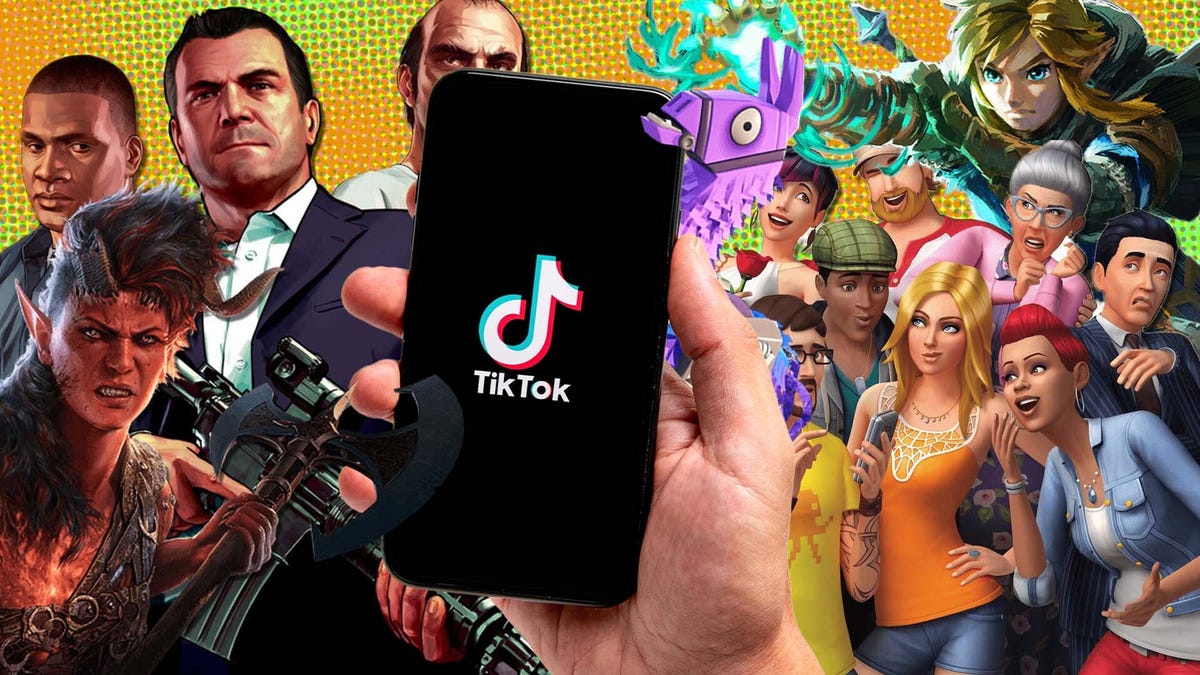The House of Representatives, historically known for its excellent priorities, passed a bill on March 13 that could ban short-form video app TikTok in the U.S. The app has over 150 million users in America as of last year, and over a billion people use it worldwide. TikTok is used primarily for entertainment, networking, and news, and for a lot of creators, it’s a major (if not sole) source of income. The ire against the app and the subsequent bill passed about it is all because the U.S. government alleges the Chinese-based company presents a security risk.
If the bill is enacted, the company will have five months to part ways with its Chinese parent company ByteDance, lest it be removed from American app stores. This will be a huge blow to how millions of Americans connect with their communities, learn about current events, and discover creators from around the internet. Like it or not, TikTok has become a pillar in how online culture permeates in 2024, and that even includes video games.
I’ve been on TikTok for about four years, and on top of it being a great tool for my job, it’s also proven to be one of the best places for video games’ natural memetic inclinations to thrive. This ranges from streamers playing games on the platform to inside jokes that become so viral they break through the gamer bubble and go mainstream. Do you think most people outside of the Genshin Impact fandom would know what the Oratrice Mecanique d’Analyse Cardinale is if Ray Chase’s rhythmic line delivery hadn’t become an audio phenomenon on the app? Or that a bunch of normies would know Sigma from Overwatch 2’s voice and mimic it when they hear a song they like?
But it goes beyond just memes. TikTok has become a central place for the people who play and make games to connect, share jokes, history, and culture in an easily digestible format. There’s a reason people turn to TikTok to teach and learn about subjects like game design, content creation, and even guides for how to get shit done in your favorite games. Some of us are visual learners. Even as a person who writes for a living, I often turn to TikTok as a place to see demonstrations of how to pull off a difficult task or navigate a map in video games.
Part of creating videos of people playing games is to demonstrate something, but a lot of us just love to show off the cool shit we do. How many videos of players torturing Koroks did you see when Tears of the Kingdom launched in 2023? A lot of those originated from TikTok and spread as the community was playing the game alongside one another. Emergent games are primed for this kind of virality, and platforms like TikTok are what have made those throughlines for the entire community on such a wide scale.
As a fandom sicko, I have to also give props to creators who feed my inner teen looking for AMVs on YouTube. My heart flutters when I see a tribute edit of Baldur’s Gate 3’s cast set to swelling music like Florence + The Machine’s “Which Witch.” It’s like the algorithm handcrafted a video for me and delivered it to my doorstep.
But perhaps the greatest gift TikTok has given video games is that it’s been a platform for smaller developers to showcase their games to people who won’t see them on big stages like Summer Game Fest. It can be a place for them to speak out about issues within the industry and potentially reach more people than they can elsewhere. Stumbling Cat, the developer behind Potions: A Curious Tale, had a viral moment to the tune of 10 million views after making a video lamenting that the game was pushed down the Steam New & Trending charts after EA shadow-dropped several Command & Conquer games at once. Potions: A Curious Tale nearly lost a lot of visibility, only for TikTok to give it a second wind.
This is something every community has to reckon with when a platform that has facilitated your connection to others potentially goes away. TikTok has its problems, such as the recent influx of shop ads on user feeds, but it has become so central to how we talk about and share a passion for games that I’m wondering what will fill the void. Twitter has become unusable, YouTube is still primarily associated with long-form videos despite attempts to capitalize on short-form videos with Shorts, and Instagram is always a month or so behind the cutting-edge trends TikTok has spawned.
TikTok’s possible ban has far-reaching ramifications much bigger than one industry. If we lose TikTok because the American government decided to spend time focusing on something other than very real problems, like its continued funding of the genocide of Palestinians, it will leave a hole in how the community operates.







